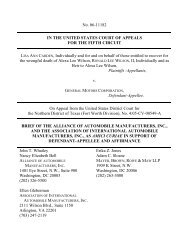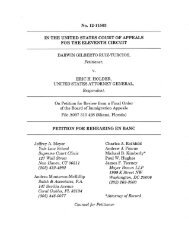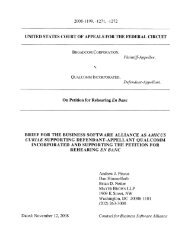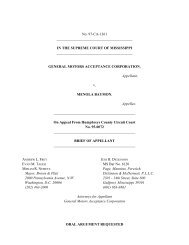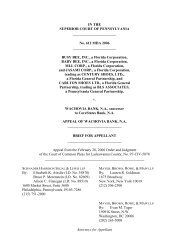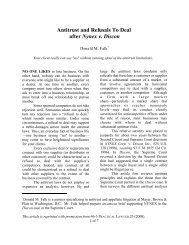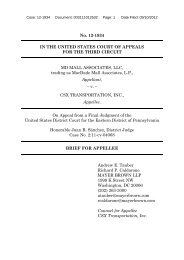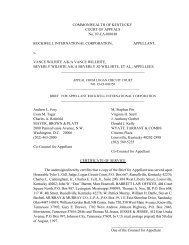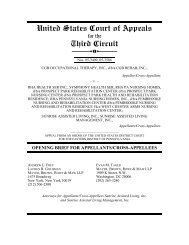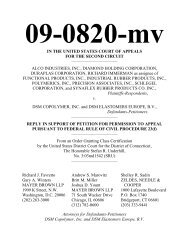No. 5-99-0830 IN THE APPELLATE COURT OF ... - Appellate.net
No. 5-99-0830 IN THE APPELLATE COURT OF ... - Appellate.net
No. 5-99-0830 IN THE APPELLATE COURT OF ... - Appellate.net
Create successful ePaper yourself
Turn your PDF publications into a flip-book with our unique Google optimized e-Paper software.
some class members and the issue of whose contract was breached depended on the<br />
individual facts of each transaction. Id. at 345. 24/<br />
The same analysis applies here. It is clear that State Farm did not breach its contract<br />
with each and every member of the class. Indeed, the evidence developed through discovery<br />
demonstrated that most, if not all, of the eleven hand-picked class representatives whom<br />
plaintiffs offered at various times did not have any claim against State Farm for breach of<br />
contract. For example, plaintiffs Laurie Loger and Tammy Snider had no claims because<br />
OEM parts were installed on their vehicles, at no additional charge. R. 4524, 4530; C.<br />
15577-80, 15914. Plaintiff DeFrank had no claim because he admitted that when he sold his<br />
vehicle, which was repaired in part with non-OEM parts specified by State Farm, he did not<br />
suffer any reduction in price due to the non-OEM parts. R. 4507W, 4507BB. Plaintiff<br />
Vickers also received full value for her vehicle — from State Farm — when she totaled it<br />
after it was repaired (in part) with non-OEM parts. R. 6342, 6358. And plaintiffs Hofer,<br />
Shadle and Avery all chose to pay for OEM parts to be installed on their vehicles — but<br />
never even attempted to prove that the particular non-OEM parts State Farm had specified<br />
24/<br />
See also Andrews v. AT&T Co., 95 F.3d 1014 (11th Cir. 1<strong>99</strong>6), where the court<br />
reversed the certification of a nationwide class containing millions of members, who sought<br />
to challenge the legality of hundreds of 900-number phone programs under state gambling<br />
and fraud statutes. The court rejected plaintiffs’ attempt to “lump[] together and condemn[]<br />
or absolve[]” the programs “en masse,” holding that the validity of each 900-number would<br />
have to evaluated under the law of the state in which the caller was located. Id. at 1024.<br />
Similarly, in In re Fibreboard Corp., 893 F.2d 706, 711-12 (5th Cir. 1<strong>99</strong>0), the court<br />
rejected a plan to try 3,000 asbestos claims “as a group” on the ground that such a procedure<br />
“cannot focus upon such issues as individual causation” and “[c]ommonality among class<br />
members on issues of causation and damages can be achieved only by lifting the description<br />
of the claims to a level of generality that tears them away from their substantively required<br />
moorings to actual causation and discrete injury.”<br />
-47-



